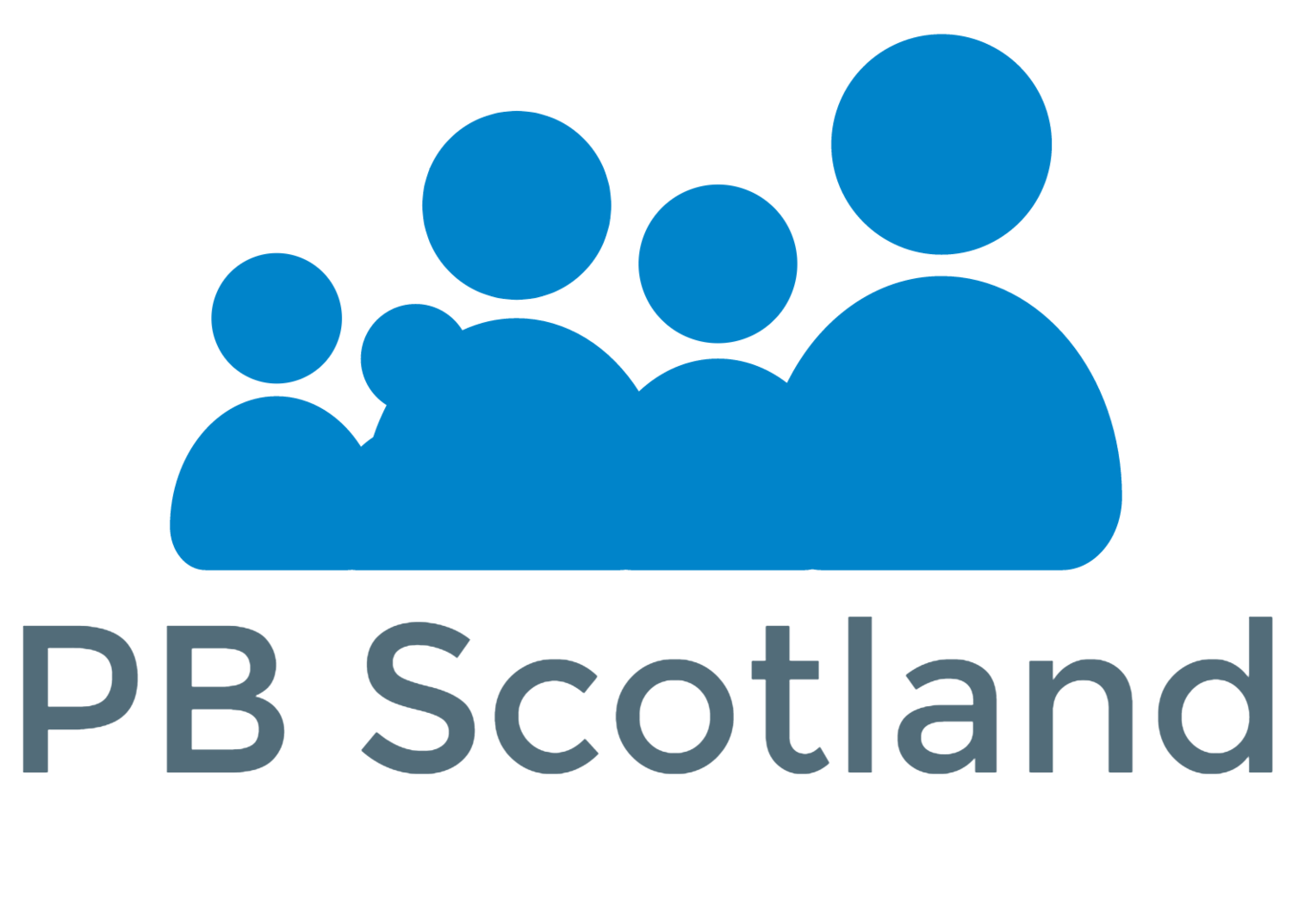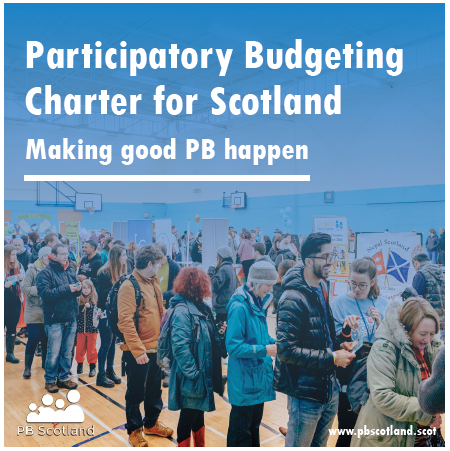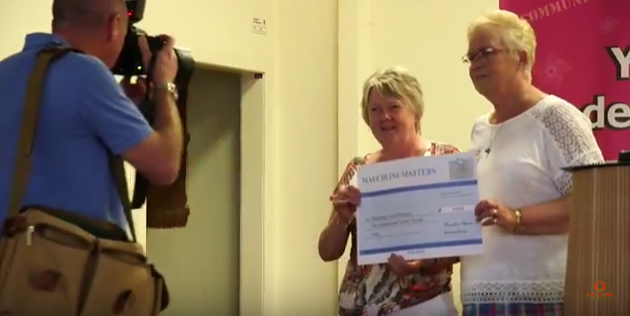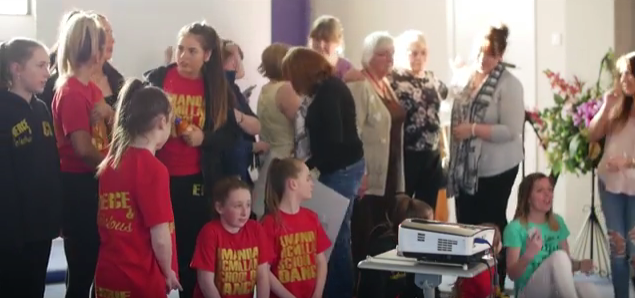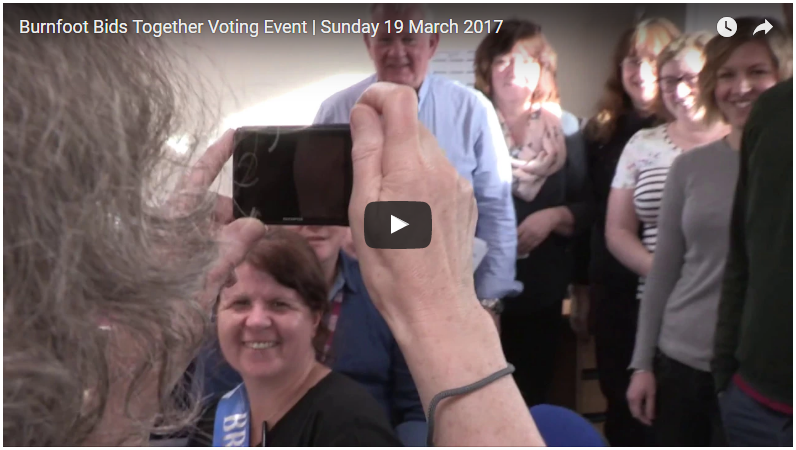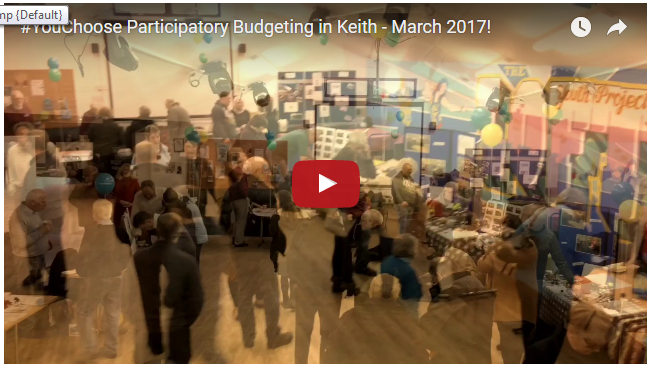On 7th June 2017 the PB Scotland Advisory Group met to discuss the progress of participatory budgeting (PB) and the future priorities for the PB Scotland Network. Below is the note of this meeting. For information about the PB Advisory contact paul@scdc.org.uk
PB Scotland Advisory Group 7 June 2017 Note of Meeting
Present: Evelyn O’Donnell Glasgow City Council, Michele Mulvaney, City of Edinburgh Council, Pauline Grandison, Coalfields Regeneration Trust, John Duffy, North Lanarkshire, Francesca Lynch, Community Links, Mohammed Razaq, West of Scotland Race Equality Council, Dot Grieve, East Ayrshire Council, Daniel Greif, Highland Council, Mary Scott, North Ayrshire Council, Martin Robertson, TSI Moray, Fiona Garven, SCDC
Apologies: Dawn Brown, Garioch Partnership, Heather Woods, MacMillan, Paul Nelis, SCDC
In attendance: Kathleen Glazik, Scottish Government, Angela O’Hagan, Glasgow Caledonian University
The meeting of the PB Advisory Group comprised of two informal presentations from Kathleen Glazik and Angela O’Hagan, followed by open discussion:
Kathleen reported on the progress made through Scottish Government £2M support package for Community Choices in 2016/17. Self-evaluations of the projects supported through the funds disbursed in 2016/17 are currently being analysed. Discussions are taking place between the Scottish Government and COSLA to explore how to take forward the target of having at least 1% of council budgets subject to community choices. There is commitment in SG to continue to support PB to the same level in 2017/18, subject to Ministerial approval.
Discussion points focused on digital, equalities and following the public pound.
Digital:
- support for digital systems – issues regarding privacy and data protection
- opportunities for synergy across local authorities on developing a common bespoke system
- alignment with Scotland’s digital strategy – queries regarding the potential for support from digital colleagues in Scottish Government, CoSLA and the Improvement Service
- potential for involving academia and research on digital via PhD opportunities
- recognition of the needs (and barriers) for community organisations in adopting digital
- recognition of the need to work with the wider community in engaging with digital, recognising equalities issues regarding access and confidence
It was agreed that a sub group should be formed to examine the above issues in more depth.
Action: FG, EO’D, MM and KG
Equalities:
It was agreed that PB Scotland should offer a learning event focused specifically on equalities.
Action: FG, PN
Following the public pound:
- Is there a need for guidance on PB and following the public pound?
- Evidence of some elected members raising concerns
- Evidence that, in some cases, PB (small grants model) is subject to higher levels of scrutiny than other forms of grant making
- Elected members, officers and communities need to develop confidence in the PB process – systems need to be robust and transparent
- Good practice needs to be resourced
- Some evidence that some community organisations are being expected to facilitate PB within existing service level agreements but without additional resource
- Highlighted that the Community Choices Fund allows for support resource to plan and implement PB processes, but this must be proportionate to the funds available for disbursement
- Still need for capacity building in local authorities, other CPP partners and community organisations
- Need for support for PB to be written into remits of (public sector) workers, and not seen as an ‘add on’
Angela gave a summary update on the findings of the evaluation work so far. An interim report is imminent. The evaluation work is expected to continue over 2017/18. GCU is working in 20 local authority areas and is developing 6 in depth case studies. They are using a combination of focus group discussions, observation, and interviews with community organisations and activists, applicants, grant recipients, unsuccessful applicants, elected members and officials. The research is focusing on the impact on services, communities and democracy, and on equalities and diversity of participation, all in the context of early stage development given that PB is a relatively new and rapidly emerging phenomenon in Scotland with new ideas and new language.
Some of the emerging themes include;
- Need for purpose of PB to be clearly articulated
- Need to highlight transformational intent (Current PB mainly seen as transactional rather than transformational)
- Work so far has generated great enthusiasm across council officers
- Generally political support is evident
- Highly resource intensive, raising concerns about future sustainability of the level of effort to support effective engagement
- Different methods and formats are being used, with varied responses.
- Largely implemented as grant making not budgeting
- Lack of clarity about the 1% (of what?)
- Limited evidence that the Public Sector Equality Duties, or the Community Empowerment agendas being used to drive PB are – seen as a distinct agenda
- Some feedback about the implications of rapid political and policy change and the ability and capacity of officials (and community organisations) to digest, plan and respond
- Difficulties in the ‘evaluability’ of outcomes at a local level (of funding patterns) but good evidence emerging of intermediate outcomes (sharing information, networking, broader awareness of range of issues)
The meeting concluded with a short discussion on priorities for the PB Scotland Network:
- Methods for building the capacity of communities to run PB processes and engage with mainstream processes, with a focus on reducing the barriers to participation
- Discussion needed on capturing secondary outcomes related to PB, for example, behavioural and cultural change (between communities and public sector)
- Support for understanding how to run a robust process – transparency, clarity, who defines the criteria and how
- Need to resolve the questions on intent and purpose of PB
- Need for support on facilitating dialogue
- Potential for action research – what could be different in the small grants model? Testing mainstream.
AOCB
It was suggested that the PB Scotland nominate a person to sit on the PB working group, or that representation is rotated. It was agreed that terms of reference for each group need to be agreed.
Action: FG, PN, KG
